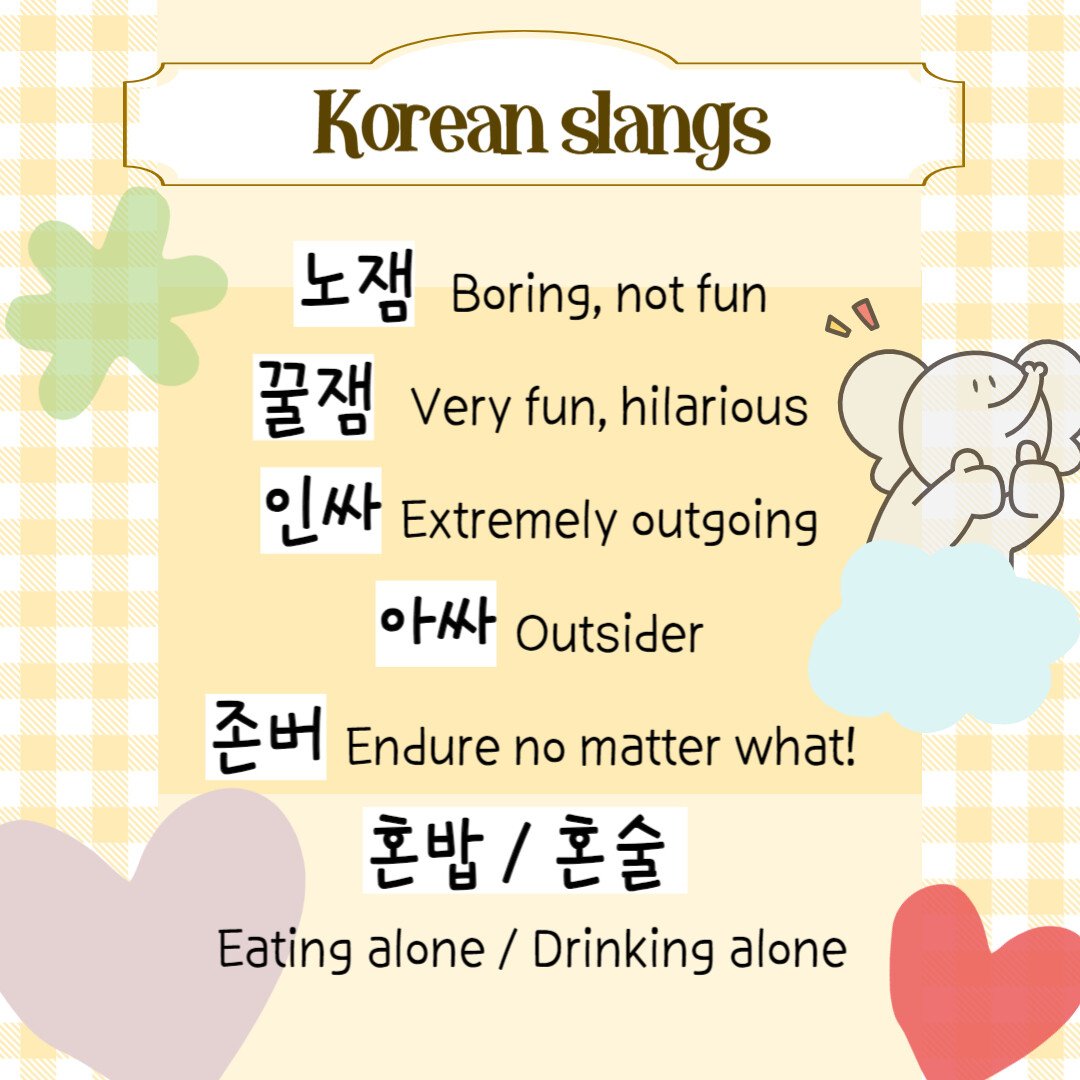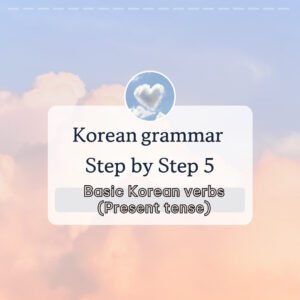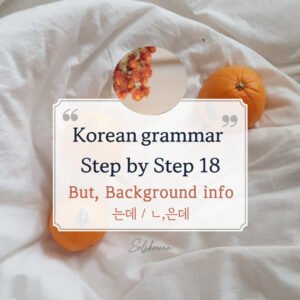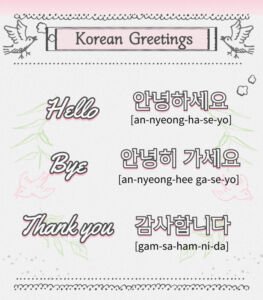Cool Korean Slang Expressions You Need to Know!
안녕하세요! (Annyeonghaseyo!)
Welcome back to our Korean learning blog. Today, we’re diving into the world of Korean slang.!
Slang expressions are widely used by young people in Korea and can be a fun way to make your conversations more lively and authentic. I’ve personally written down some slang expressions that I often use. I’m in my 20s, so younger generations might use even more diverse slang, but these are the ones I actually use in daily life. Let’s go through each one!
Let’s explore some popular Korean slang terms and their meanings.
If you don’t know how to read the Korean alphabet yet and would like to learn (you can master it in just 30 minutes!), please check out this post: Click here!
Let’s dive in! 😸

1. 대박 (Daebak)
- Meaning: Amazing, awesome, great
- Usage:
그 영화 정말 대박이야! – That movie is really awesome!
그 식당 대박 맛있어! – Oh, that restaurant is amazing!
와, 대박! – Wow, amazing
2. 헐/헉 (Heol/ Heok)
- Meaning: Oh my God, OMG, Wow
- Usage:
헐, 진짜? – OMG, really?
헉, 왜 그래? – Oh gosh, what’s wrong?
3. 노잼 (No-jaem)
- Meaning: Boring, not fun
- Usage: Combines “no” and “jaem” (short for 재미있다 – to be fun)
이 드라마 진짜 노잼 – This drama is so boring
아 그건 노잼이다 – That’s not fun at all
4. 꿀잼 (Kkul-jaem)
- Meaning: Very fun, hilarious
- Usage: Combines “kkul” (honey, sweet) and “jaem” (fun). it’s the opposite of 노잼!
그 TV 프로그램 정말 꿀잼이야! – That TV show is really fun!
5. 인싸 (Inssa)
- Meaning: extremely outgoing, social butterfly
- Usage: Used to describe someone who is popular and socially active! You can use it for someone who knows everyone, is super popular, and has many friends.
걔 친구 20명 있대, 완전 인싸야! – She has 20 friends, She is such an extrovert!
너는 회사에서 인싸잖아. 너 모르는 사람 아무도 없어. – You’re a social butterfly at work. There’s not a single person you don’t know.
6. 아싸 (Assa)
- Meaning: Outsider, someone who enjoys solitude
- Usage: We mainly use it for those who don’t have many friends and like to be alone.
너는 인싸지~ 나는 완전 아싸야! – You’re super outgoing~ I’m a total loner!
나는 아싸라서 혼자 밥먹는 게 익숙해 – I don’t have friends, so I’m used to eating alone
7. 존버 (Jonbeo)
- Meaning: Endure and persevere no matter what
- Usage: A combination of “존나” (jonna – really, extremely) and “버티다” (beotida – to endure). This term is commonly used in contexts where individuals are facing obstacles or setbacks, such as financial difficulties, academic struggles, or personal challenges.
이번만 존버하면 돼. – I just need to hang in there this time.
A: 내 주식 엄청 떨어졌어.. B: 그냥 존버해 – A: My stock price dropped,, B: just hang in there, Just persevere.
8. 혼밥 / 혼술 (Hon bab, Hon sul)
- Meaning: Eating alone / Drinking alone
- Usage:
오늘은 혼밥 할 거야 – I’m going to eat alone today.
집에서 혼술할 거야 – I’m going to drink alone at home.
9. 얼죽아 (Eol juk-a)
- Meaning: 얼어 죽어도 아이스 (Iced coffee even if I freeze to death)
- Usage: This term describes the Korean obsession with iced coffee, even in the coldest weather.
저는 얼죽아예요 – I drink iced coffee even if I freeze to death
10. 멘붕 (Menbung)
- Meaning: Mental breakdown
- Usage: 멘붕 is short for 멘탈 붕괴 (mental collapse). It’s used when someone is extremely shocked, stressed, or confused.
나 오늘 완전 멘붕이야 – I’m totally having a mental breakdown today
미안, 어제 멘붕이였어 – Sorry, I was extremely stressed yesterday
Practice Makes Perfect!
I’ve personally selected these Korean slang expressions based on my everyday usage. They’re seamlessly integrated into conversations and are sure to delight your Korean friends! These phrases are still widely used, so take the opportunity to memorize them and use them with confidence. I hope you found this content enjoyable. For more materials like this, feel free to explore other sections of my blog!




